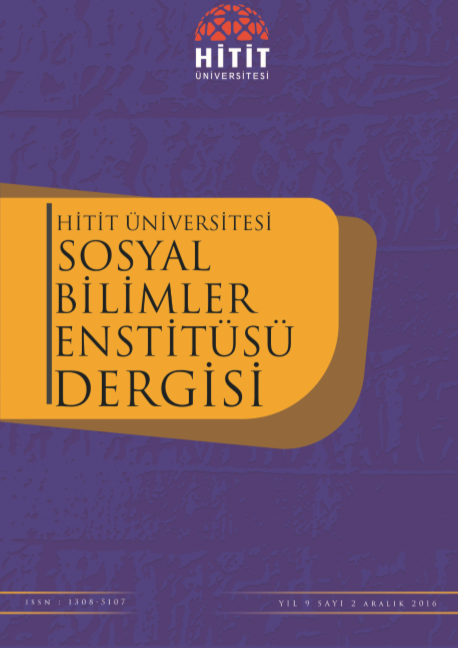Kültür, Din ve Yemek Etkileşimi Çerçevesinde Arap Mutfağının Kavramsal Olarak İncelenmesi: Adana İli Örneği
Conceptual Analysis of Arabian Cuisine in The Framework of Culture: The Case of Adana
Author(s): Oya Berkay Karaca, Sıla KaracaoğluSubject(s): Customs / Folklore, Culture and social structure , Sociology of Culture
Published by: Hitit Üniversitesi Sosyal Bilimler Enstitüsü
Keywords: Food culture; Cultural interaction; Religion; Arabian cuisine; Adana;
Summary/Abstract: The world hosts plenty of societies with different economic, social, political and cultural characteristics. Food and cooking culture is a significant heritage that represents the identities, lifestyles, dietary practices and uniqueness of these societies. Turkish cuisine, as one of the most important cuisines of our contemporary world, has interacted with several cultures in the course of time and formed one of the richest culinary culture of its own. Arabian cuisine, which this study focuses on, is one of the affluent cuisines that effected Turkish cuisine especially after the acceptance of Islam by the Turks. The purpose of this study is to examine the characteristics of Arabian cuisine, which is dominant in the Eastern Mediterranean region, in the framework of culture, traditions and religion, and to determine the characteristics of the food culture and the factors that affected this culture in Adana. The paper ends with a discussion and implications on the development and sustainability of Arabian food culture in Adana.
Journal: Hitit Üniversitesi Sosyal Bilimler Enstitüsü Dergisi
- Issue Year: 9/2016
- Issue No: 2
- Page Range: 561-584
- Page Count: 24
- Language: Turkish

